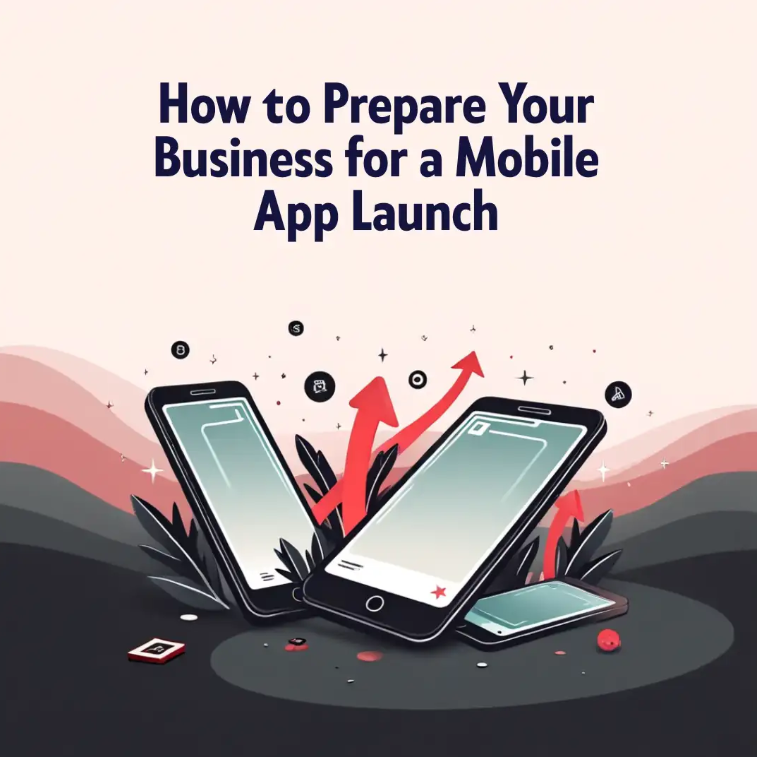
Launching your business' mobile app is a milestone for any business; however, it's just the beginning of your journey. Many businesses focus only on building the app. But launching it the right way is what ensures downloads, user engagement, increased revenue, and most importantly long-term growth.
Here’s a complete, non-technical, business-focused guide to help you prepare your company for a successful mobile app launch.
1. Define Your Goals (Before You Launch):
An important question should be asked: what does success look like?
It's important to ask the success metric or goal that your business is aiming to achieve
For example:
- A specific number of downloads in a specific timeline
- Generating a specific number of leads
-improving app engagement rates, retention or user loyalty
-Increase customer satisfaction
-Overcome competition with your app's edge or unique selling point
Setting goals or what success looks like for your business helps you:
-Choose which features to prioritize
-Decide your marketing efforts to meet the goal
-Know what metrics to measure this success or goal by
Setting clear goals and KPIs gives you a clear vision regarding what you will do after the app launch and helps you measure whether the app is actually benefiting your business
2. Identifying and understanding your target users
Having an app idea and starting in its development definitely means that you have an idea of who your business' target audience are, but it still needs to be more detailed
It's important to ask the following questions:
- Who will benefit the most from the app?
- What problem are they solving with it?
- What devices do they use most?
For better understanding the marketing activities your business will do, find answers to the following questions:
- What social or digital channels does these target audience use the most
- When is the time where they are the most active on these social or digital channels?
Also, it is important to create personas or lookalike audience for your ideal users to be able to understand how to target them.
This will also help you tailor app experiences, content, design, and launch strategy that will cater to your target audience exactly.
3. Test and Get Feedback Early
Before you go public, you need to test the app with real users. This can be done through various methods like interviews and focus groups.
Use this feedback to fix bugs, improve onboarding, or simplify navigation before you launch the app.
4. Plan a Pre-Launch Marketing Campaign
Marketing your app right is important and this is why it needs planning few weeks in advance of your launch.
- Create a landing page with app features and highlight your unique selling point
- Prepare launch content and teaser posts (sneak peaks)
- Collect emails and prepare email newsletter to notify your potential users of the app launch, maybe include launch offers to
5. Prepare Your Website and Social Media
Your app is not the only thing, make sure to have a strong online presence that are aligned with your app and identity.
Do the following
-Update website homepage (add “Download the App” banners or sections)
-Create social media accounts and link it to the website
-Add social media bios (add app store links)
-Email signature and newsletter templates and content
-FAQs or Help Center (with mobile app tutorials or support tips)
6. Coordinate Your Team
Internally, everyone in your business should be on the same page.
Make sure of the following:
-Your customer support team knows how the app works and how to help users
-Your sales or marketing team is aligned
Do an internal training or “soft launch” session to make sure there’s no confusion when customers start asking questions about the app.
7. Plan Your App Store Presence
Your App Store and Google Play listings can make a huge difference in downloads.
Focus on:
- A catchy app title and subtitle
- A clear app description (focus on benefits, not just features)
- High-quality screenshots and maybe even a short demo video
- Choosing the right keywords for visibility
- Gathering early reviews and ratings
8. Prepare Your Post-Launch Strategy
Most businesses stop planning at launch day, but real growth starts after the launch.
Plan for:
-Push notifications or emails to re-engage users
-Onboarding flows to guide new users
-Tracking user behavior with tools
-Regular updates based on user feedback
9. Have a Backup Plan
Make sure of the following
-Have a support channel or chatbot ready
-Prepare a FAQ or troubleshooting guide
-Assign someone from the team to respond quickly to app reviews or social comments
The faster you respond, the more trust you build with your early users.
